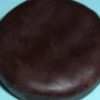What grammar or punctuation errors do you make the most?
Share, so others may benefit.


Actually, I always catch them (as far as I know). It just bothers me that it keeps happening. I'm pretty sure the psychology is that the modifier doesn't occur to me until I reach the end of the sentence. Thus, having to go back and rewrite all the time.
http://en.wikipedia.org/wiki/Dangling_modifierI think I'm ok with my danglers, but consistency put my i before my e after c. I usually catch this though.
That reminds me. I recently discovered Chrome has a spell checker extension that is the same one Google uses on their search page. It even catches grammar errors. As good as MS Word's. And it is free.
I wouldn't worry about this too much in general. I found out recently that in actual fact the rule 'i before e except after c' is generally incorrect, and overall in the English language the 'e' does usually appear before an 'i' (even after a 'c'). Source : Stephen Fry, QI (Quite Interesting), a program on facts little known

Some of the examples he gave didn't make sense, though. "Being" shouldn't be counted, as it is an -ing word. There is no question of an "ie" or "ei" combination. Same with hacienda, which is a Spanish word and sounds just like it is spelled for those who know Spanish. It would be pronounced totally different if the e were before the i. Species is plural and or course ends in "es." Interesting link: http://www.usingenglish.com/weblog/arch … 0021.html. With the rule applied correctly with the known exceptions (certain syllable combinations), teaching children the rule is helpful more often than not, as they will be correct about 90% of the time. Interesting.
The link you posted didn't work unfortunately (404 not found error).
Re-the 'hacienda' word, I suspect that was the researchers fault as they no doubt didn't take the time they should have to get English words. As Stephen Fry explained when Alan Davies made that point, the fact remains that in the majority of cases (vast majority in fact) the 'e' does come before the 'i' after a 'c'. I am sure there is a more comprehensive list of all the words of both spellings online somewhere.
Good list here that shows that the 'i before e except after c list' is not all that accurate:
A
abbacies
aberrancies
abortifacient
accountancies
accuracies
adhocracies
æquivalencies
agencies
agreeing
albeit
Alzheimer's
ancient
aristocracies
atheism
B
bankruptcies
beige
Beijing
being
belligerencies
bibliomancies
biccies
bureaucracies
C
caffeine
choccies
competencies
concurrencies
conscience
conservancies
consistencies
conspiracies
constituencies
contingencies
counterfeit
currencies
czarocracies
D
deficiencies
deicide
deify
deign
deindustrialize
deity
delicacies
delinquencies
democracies
dependencies
disagreeing
dreeing
dreidel
E
ecstacies
efficiencies
efficiency
efficient
eight
either
emergencies
E cont.
Excellencies
excellencies
exigencies
extravagancies
F
Fahrenheit
fallacies
fancied
fancier
fancies
feign
feisty
financier
foreign
foreseeing
forfeit
freight
frequencies
G
geitost
gesundheit
glacier
H
heifer
height
heinous
heir
heist
herein
I
idiocies
idiosyncracies
inaccuracies
inconsistencies
inefficiencies
infrequencies
insufficient
intimacies
inveigle
K
kakistocracies
kaleidoscope
keister
L
latencies
lei
leisure
lieutenancies
lunacies
M
magistracies
meiosis
mercies
N
neigh
neighbor
neighbour
neither
nescience
O
obeisance
obeisancies
obstinancies
omniscience
O cont.
onomatopoeia
P
peine
pharmacies
policies
prescience
proficient
protein
R
reign
reignite
rein
reindeer
reindustrialize
reinforce
reinstall
reinvest
reisolate
reissue
S
safeish
scarabaeid
schlockmeister
science
seeing
seignorial
seine
seismic
seize
sensei
sheik
skein
sleigh
sleight
society
sovereign
species
stein
sufficient
supremacies
surfeit
surveillance
T
their
theism
therein
U
urgencies
V
veil
vein
W
weigh
weight
weir
weird
wherein
whereinto
X
xanthein
Z
zeitgeist
zootheismYeah, but don't you see how inaccurate their list is? For example, all those words that sound like "neigh" shouldn't be on there. "Beige," for example does follow the rule. It is part of the rule and shouldn't be on this list. And words that end in "ing" shouldn't be on there if the "e" is right before the "ing" since it's not a dipthong in that case. The plurals shouldn't be on there, since the "y" is changed to "i" and "es" is added. It's not even an "ie" or "ei" word. Intimacies? Contingencies? See, those don't even fit. "Reinforce?" They obviously don't know language. Re-inforce. There is no way the "i" would come first. It's not a dipthong, either.
They were definitely reaching when they made the list, as many of the words don't even fit. Words DO follow the rule more often than not. If all of the "ay" sounding words were removed as well as "ing" words and "plurals," the list would be much shorter. I think I may do that and see. Look at the "c" words for example. Most of them shouldn't even be on there. They don't have the dipthong. They are just plurals with the "y" changing to "i."I certainly noticed a lot of the words were plurals which should not apply, and some of the other words were rather 'iffy', but as it was easier to copy and paste the lot I did rather than choosing them one by one. I still feel strongly that if the known words have been counted, and the words that do and don't follow the rule established by authorities on the subject, then it seems likely to be true that 21 times as many words do not follow the 'rule'. Stephen Fry himself is a known literary genius who would be the first to refuse to state something he knew not to be true. Whatever anyone chooses to believe, children are no longer taught this in schools for a reason, therefore the authorities clearly feel the rule is misleading. Also they never made any effort (from what I recall) in schools to teach children that there were so many exceptions such as plurals, foreign words, 'ay' sounding words etc, and this in itself would only have served to confuse children further as the rule would no longer be 'simple' to understand. Interesting discussion though

Well, I still think it's totally helpful, and the "ay" sound IS part of the rule in schools. Nobody would even think to include the plurals, as the Ie or ei isn't even a part of the word. He should know that. He's just trying to throw that in there, I think, thinking that people won't notice.
Neither would foreign languages come into play. Sure, I think Fry is trying to make a point that the rule does have many exceptions, but that is true with the English language in every situation. There are no steadfast rules. It's a helpful rule in my eyes, and he is trying to prove a point that the evidence just doesn't support.Maybe I'll write a hub about it. :-) It IS an interesting topic.
Just in case you don't see it, the post I answered to Hollie T (above) has info direct from the QI website which might be very useful to you if you do write a hub on the subject. Also well worth checking out the SOWPODS list they used as a source, plus they mention that they didn't include plurals in their figures. The comment comes from one of the researchers and is very enlightening

Just quickly taking off the obvious ones--words that sound like neighbor and weigh, plurals that DO follow the plural rule of changing "y" to "i", and "ing" words that have no place on the list, the words go to well under half. Some categories have none at all. I could also eliminate Alzheimer's and Fahrenheit since they are names. Some words are obvious, too, such as atheism, since we know that "ism" works but not "esm." I still think the rule is helpful. These people were stretching to try to make it not so.
In fairness I very much doubt that QI (a programme full of little known facts) based their research on one website such as the one I randomly lifted the list from (warts and all). I am sure an email to the programme's website could provide the source of their information and would be enough to clarify things.

Misty, it's ingrained on me. Mrs. Murphy, my English teacher when I was seven, used to wrap my knuckles when I got it wrong. When I do so now it's like, she was right, I'm stupid!
Good to know that she didn't know it all, after all.
lol, +1, bet you wish you could pull her up on it now
 (hope you watched the link I posted earlier, very amusing and makes the point in a very interesting way).
(hope you watched the link I posted earlier, very amusing and makes the point in a very interesting way).More interesting info on this from the QI website, Quote:
"when we compiled those long lists of the words which do and do not obey the "rule", for sure a lot of them were words which are not in common usage.
But in fact, this is true of both the words which do obey the "rule" and those that don't.
I mentioned above that there are only six words in everyday use which really do have <cei>. One is ceiling - and OK, so everyone who saw the show knows that one! Then there are four verbs viz conceive, deceive, perceive, and receive and their associated forms. Since it is in common use as a noun independent of the verb, receipt can be the sixth. And that's about your lot.
For <cie>, we have glacier (for some) and species which break the "rule" however we phrase it. And for <*ei>, where * may be any letter other than <c>, the list is a long one. Either and neither for many people, atheist for some, and caffeine, protein, seize, weir, and weird for everyone. There's no need to resort to words like phenolphthalein.
So considering only words in everyday use, and only words in which the vowel sound in question is pronounced /i , we already have more exceptions than instances. (Without even considering plurals and third person singulars in -cies - which never obey the "rule", but are rarely mentioned in those caveats.)
, we already have more exceptions than instances. (Without even considering plurals and third person singulars in -cies - which never obey the "rule", but are rarely mentioned in those caveats.)
No, the exposition of the matter presented on the show wouldn't do if we were writing a paper on the matter. Not because it is wrong; it isn't. But because it is incomplete.
For instance, no one has yet queried the definition of "words in the English language", and for academic work we'd certainly need to explain which list we were using and why. (Just in case anyone was wondering, we actually used the 2006 version of the SOWPODS list, which exists for the purposes of Scrabble.)
But this is televisual light entertainment, not a university!"
The link to the actual relevant forum thread that goes into much more debate and discussion on the subject is: http://old.qi.com/talk/viewtopic.php?t= … mp;start=0
I always catch myself writing split infinitives. I know they're wrong, and yet I continue to write them.
Your posts caused me to boldly decide it was time I learn exactly what a split infinitive is. Turns out the definition is simple and easy. I learned something today.
http://grammar.quickanddirtytips.com/sp … tives.aspx
Good news. Excepting as otherwise indicated, splitting infinitives is not that big of a no-no.
I would have to say I forget comma's the most. I also have running sentences that I just can't seem to shorten. I try to read my hubs out loud. If I have to breathe more than once by the time I've finished it, its way too long. Sometimes I repeat the words, which I catch when I proofread it.
I agree; my commas get me into the most trouble...

Apostrophes are a challenge too. They're just commas hanging a little higher on the page.
Oh, apostrophes are easy! They show possession. Choose the subject first before adding the apostrophe.
If singular, for example, one student would be the student's books. One student has a lot of books.
If plural, several students have more than one book: the students' books.
's for singular, s' for plural. Pretty simple, really. Any other questions?Oh, sure, just when you think you understand apostrophes, you meet ... itses.
It's is a contraction, for "it is."
Its is a possessive.
The itses fly in the face of all my elementary school grammarians taught.+1, it took me years to find out you didn't use the apostrophe in 'its' when used as a possessive (unlike other words).
Too many commas for me. Causes me to be a substandard writer at Textbroker, but in the real world it's never been an issue.

I have to admit, I have and addiction to commas and semicolons.... and I don't know how to stop... oh and whatever that (...) is, I can't stop doing that either! Someone please take away my buttons! Lol

Addiction instead of addition? Commas instead of comas? Is that what you meant? I actually find grammar so easy, so message me at any time. I love grammar!
Oh my goodness, I can't believe I just misspelled two words while referring to my 'grammar' problems! Ha ha... yeah, thanks for pointing those out to me. Gee, I think I'll go bury my head in the sand now! lol
No... no sorry... I'm laughing, honestly. Usually I tend to do these things when I'm being quick and careless, I appreciate it actually!

I do that a lot too, cantuhearmescream...
But then sometimes you feel you have to leave a thought just hanging in the air...
Works well in forums though...Ha ha.... perhaps I should spend more time here then...

For me, it's often the spellings rather than the punctuation. The auto-correct feature is there to help us out. But it does not work all the time. One example is the use of two words 'advice' and 'advise'. MS Word always misguides, at least I experience that, about which one to be used. I have often seen people following the advice of the auto-correct and using the noun (advice) where the verb (advise) needs to be used actually.
I have a tough time spelling "remember" when I'm typing. It's not that I don't know how to spell it -- I never make the mistake when writing by hand. For some reason my finger always wants to add an "e" -- rememeber. I have a few words my fingers can't spell. Weird!
My fingers always forget the second "m". I kid you not.
I split infinitives. But like someone once said "When I split an infinitive I want it to damn well stay split".
If I want to use Chrome for grammar checking I have to switch over to Chrome instead of Google. I can sure use the grammar checking,it has been a long time since I went to school and I have just about forgotten everything that I learned in English. Back then that was one on my favorite subjects. Thank you for putting this on here, I really appreciate it . Clara Kish
My frequent mistake is to type 'teh' instead of 'the'.
I before e except after c, or when sounded like "a" as in neighbor and weigh.Most of the time it works. Sometimes not so much.
Many of these have that "ay" sound: beige
deign
eight
feign
feint
freight
heir
neighbor
reign
rein
surveillance
their
veil
vein
weigh
Read more at http://www.usingenglish.com/weblog/arch … I0WIVIj.99Great examples of why the 'i before e except after c' rule is so flawed

Edit: I am a pratt as these don't have 'c's at the start, but the QI info is still accurate in the English Language.But these mostly follow the second part of the rule: "or when sounded like ay as in neighbor and weigh."
Yep true, but it is also a fact that in the majority of cases the e does come before the i even after the c in the English language. Goodness knows why schools started (many years ago) telling the kids the 'i before e except after c' rule when in fact this is untrue.
I confess I should have read your previous examples more thoroughly (looking for the 'c's) but I blame it on a couple of cans of cider and it being nearly 06.00am here lol.
LOL! Well, I think the full rule does apply much of the time, and it's a great way for school kids learning to spell to remember how to spell the majority of common words. I would like to find a list of words that don't apply to either part of the rule.
It would be a great rule for teaching children how to spell 'if' it were correct. This was what made the rule so bizarre when Stephen Fry explained that in the majority of cases it isn't true. This effectively means the schools were actively teaching kids how to make spelling mistakes more often than not when putting i's or e's after c's. On the programme they reeled off a load of words which did show the error of the rule e.g. glacier, species etc, but like you I would love to see a full list of great examples of the flaw in the rule just as an illustration.
This is the clip from QI that explains it and gives the actual numbers of words involved i.e. 923 English words have 'cie' in them and therefore break the rule. Officially there are over 21 times as many words that break the 'i before e except after c' rule, and for this reason the 'rule' is no longer taught in schools. The link is worth watching because it is really funny and Daniel Radcliffe is one of the guests on that week's show:
http://www.youtube.com/watch?v=duqlZXiIZqABut aren't most of those "cie" words 2 syllables? I don't even consider them when thinking about the rule. The rule has always helped me, because I think it covers a majority of certain types of words. I'll check out the link. Thanks.
Trouble is that when they taught this in schools they never said 'in two syllable words only' (and to be honest I never even thought about whether it mainly applied in two syllable or more words). Bottom line appears to be that in the English language 21 times as many words go against the rule as follow it, therefore to avoid confusion schools stopped using it as a teaching aid (no doubt to avoid whole generations of children spelling 'glacier' as 'glaceir' lol).
Actually, this list does follow the rule (the second part of it). They have the "ay" sound as in "neighbor" and "weigh."
I'm a slow publisher on HubPages. I probably spend too much time on revising and proofreading b/c I don't want to have grammar or spelling errors. Sometimes I do catch stupid stuff when I read over old ones, though. :-(
+1 I'm obsessed with it, reading over and re-reading over my capsules in edit mode and in the preview box before I can press publish. And I refuse to use spell checker. Crazy!!
I've never used the HP spellchecker. My browser pokes me with a stick every time I misbehave.
I don't trust spell-checker. LOL. I read my hubs over and over and usually go back for several days before I publish them! :-)
Misplaced appositive phrases are my downfall. I know better, yet they litter my writing. I think the problem is that I keep thinking of things to add in mid-sentence, forgetting that they're separating a noun and its modifier.
I wish we were all writing in Latin, so that our word endings could indicate which nouns and descriptives are linked no matter how far apart they are.My problem is typing completely the wrong word in response to something else I'm hearing or reading while I type, and then not catching it (I am a lazy proofreader).
Also I have trouble with words that have 'g's in the middle. Legend, pigeon etc. I always want to add a d before it. I know it's wrong, but it feels so right!When it comes to grammar, and/or pronunciation. I believe I have more issues with the grammar portion. Distinguishing when to use Then or Than, in a sentence. And also issues, of where to place a semicolon, or comma, at times can also be an issue for me. Usually spelling a word correctly is never an issue for me. Unless I am using my Ipad to type an article, rather than the laptop.
I find that I make many more spelling errors, most likely because of the smaller keyboard, when I type on my Ipad. But then again no one is perfect, especially when we fail to go back and edit our work. Which for the most part is plain laziness on everyone's part, including myself.
JlI have a problem with using commas when they aren't necessary. Back in school, I was an excellent speller and I'm shocked by how many words the spell checker catches now.
I always have trouble with effect and affect. I learn it and then don't use it, so it leaves my brain.
The 'who' or 'whom', and the 'which' or 'that' issues can confuse me.
Try having one word in your mind, but typing something else. Like you have "it's been raining in Chicago" and somehow your fingers type "it's being raining in Chicago." And you're like wtf?!
Myriad is becoming the "it" word with writers everywhere. Its first use is as an adjective not as a noun. You wouldn't say "It is a blue of dress." You'd say "It is a blue dress." So it is "myriad ideas" - not "a myriad of ideas". If you are well-read enough to use this interesting word, you should use it as its first use defines.
but even "a myriad of ideas" would be a noun.
Funny how that works. It can refer to a noun-myriad can be a noun rather than adj. "A number" of ideas" for example. "A myriad" of ideas. Both nouns with myriads being used as an adj.
Who is using it as an adjective? I don't think that's correct to do.
Placing an "a" in front of myriad turns it into a noun.
Yes, I know that. I've just never heard of it being an adjective. That's new to me. Is it very common?
So Victoria - the obvious answer to all of this, in your particular case. Is that you obviously prefer good grammar, over good taste. Is this not true? (;
http://www.merriam-webster.com/dictionary/myriad
Recent criticism of the use of myriad as a noun, both in the plural form myriads and in the phrase a myriad of, seems to reflect a mistaken belief that the word was originally and is still properly only an adjective. As the entries here show, however, the noun is in fact the older form, dating to the 16th century. The noun myriad has appeared in the works of such writers as Milton (plural myriads) and Thoreau (a myriad of), and it continues to occur frequently in reputable English. There is no reason to avoid it.
To be honest though, I think, personally, that it's stylistically better as noun. It simply sounds better. "A myriad of ideas" sounds better than "myriad ideas" to me. Everyone is different, some prefer the adjectival sound better.I first discovered this lovely word in poetry, where it is commonly used as an adjective. In prose and mathematics its common use is as a noun. Don't think it is nearly as pretty, but it is not wrong.
That's interesting. I think that's why I love language. It's so fascinating. :-)
It is. There is much in language that is optional, not right or wrong. You can have your preferences. Those who have preferences different from miine might still irritate me, but they aren't mistaken. I almost have more compassion for writers who make outright errors. I can help them (used to be an editor) but those who disagree with me have a right to their opinions - irritating!!!

Well, in poetry it would make sense because you're compounding sentences. "A myriad of" wouldn't be smooth in poetry but I do prefer it in prose. Sounds a little Shakespeare to me-delicate. But that's the way I envision it. "Myraid Ideas" does sound wonderful in poetry.
Sorry, I meant, "compressing" sentences.
Not to say that it doesn't sound wonderful in prose either. Just preference.
I'm a grammar boss. But somehow I cant spell 'origional' no matter how many times I try.
- Beth37posted 10 years ago
0
I don't pay much attention to apostrophes and capitals when Im on a forum. I make an effort when Im writing a hub etc. There are a few words that I repeatedly fail to spell correctly. They are not hard, but it's like I refuse to remember them.
Chocolate
challenge
alcohol ...
There's more, but I can't remember them now. I spelled all these right just now without spell check leaving me to think if I slowed down, Id do better. Since I have a degree in German, I often capitalize nouns because at times it's difficult to distinguish when you use the noun in English since the rules vary.
And in German you always capitalize nouns because it's a more practical language. English if far from practical. It's like Heathrow airport, they throw a slew of everything in.
Sorry, just to clarify, it can be difficult to know when to use the noun in English when you've studied German so much that it becomes your second language.
I'm always rushing and make the mistake with 'your' and 'you're.' I catch it most of the time and correct it but it happens more than any other for me. Other mistakes are not spelling errors but letters missing because, again, I'm rushing and don't check for mistakes. I don't know if it's dried food, drink, or dust but keys on the left side of desktop keyboard stick and cause incomplete words. (yuck)

I don't know if anyone else has this problem, but are there certain days where you just can't spell the most simple words, or even find the right words at all? You type and you know that the text is grammatically incorrect, you know it is, and you're searching for the correct sentence, or spelling- but just can't find it?
But the following day you can, without even really thinking about it.
Related Discussions
- 41
Misspelling, Bad Punctuation, and Poor Grammar on HubPages
by JSParker 12 years ago
I think HubPages is just a terrific opportunity for writers to write and make connections within the HubPages community. However, I am concerned about the quality of some of the hubs I see. Even if the writing is fresh and lively, if the spelling, punctuation, or grammar are poor, then...
- 61
What are some common grammar/usage errors that drive you nuts every time you see
by Laura Schneider 9 years ago
What are some common grammar/usage errors that drive you nuts every time you see them?
- 23
Does bad grammar and spelling bother you?
by thebeast02 8 years ago
Does bad grammar and spelling bother you?I don't expect everyone to be an English professor, but for goodness sake people, use some punctuation and a built in spell-check! This is primarily aimed at forums, hubs, and places like YouTube comments. Places where people could take the time to read over...
- 48
Is it rude to point out grammar/spelling mistakes on hubs via comments?
by RocketCityWriter 6 years ago
Is it rude to point out grammar/spelling mistakes on hubs via comments?I've come across numerous hubs that have grammar and spelling errors, some minor and some littered with mistakes. Otherwise, these hubs would be interesting and will written in my opinion. Is it rude to point out these mistakes...
- 13
I'd like feedback on my article: The truth about making money online and how...
by daltonwrites 6 years ago
Hi Hubbers,I'd like some help with passing the Quality Assessment Process. Will you please give feedback on my article The truth about making money online and how you can do it for free. (must be signed in to view). What can I do to improve? Thanks!Hello id like to know how i can improve my article...
- 55
Do hubs with spelling errors make you think less of a hub?
by cre8ivOne 11 years ago
Do hubs with spelling errors make you think less of a hub?Is anyone else distracted by a hub that has decent content but several spelling errors or grammatical errors?

































